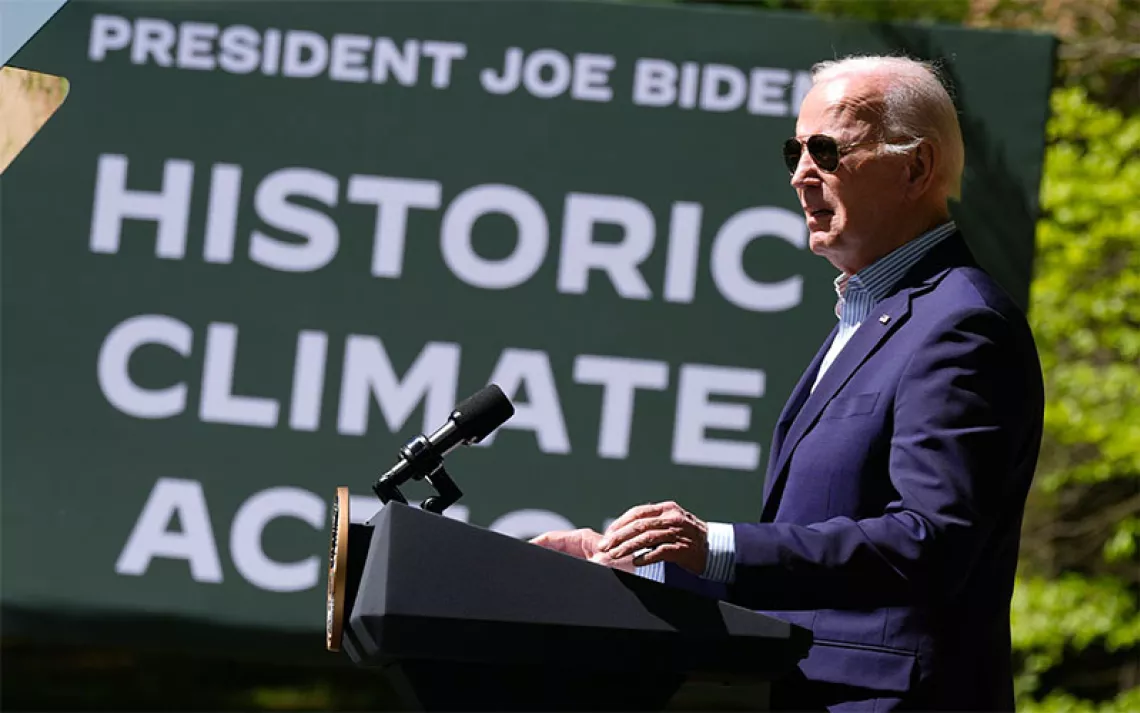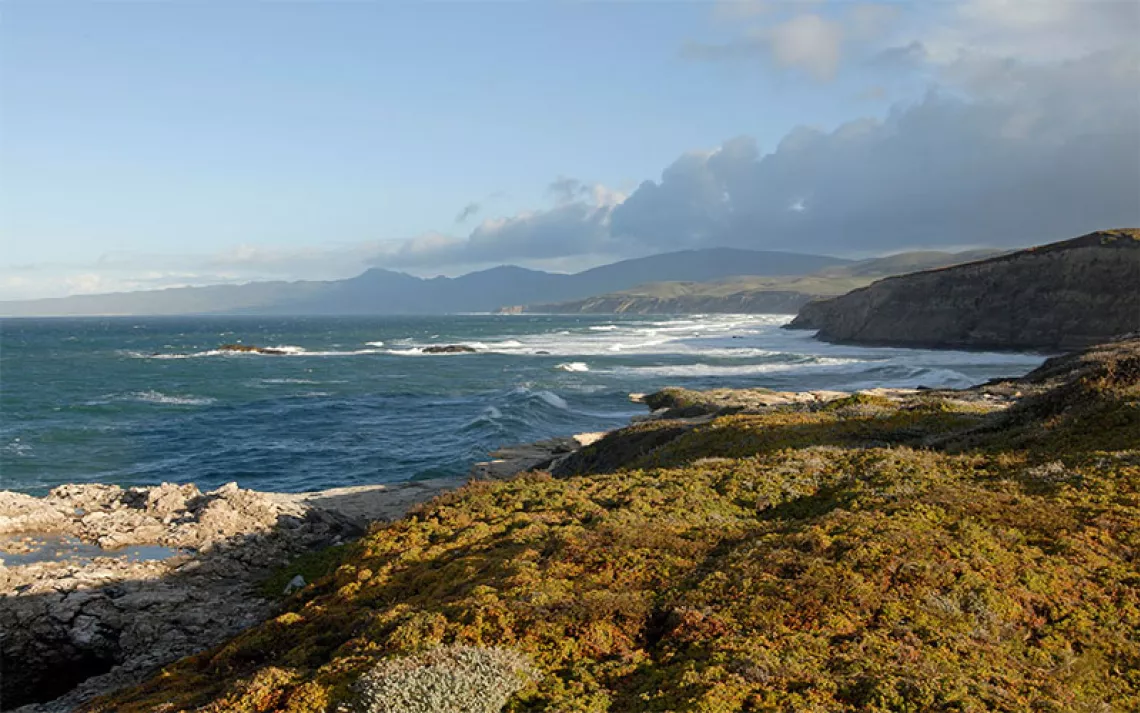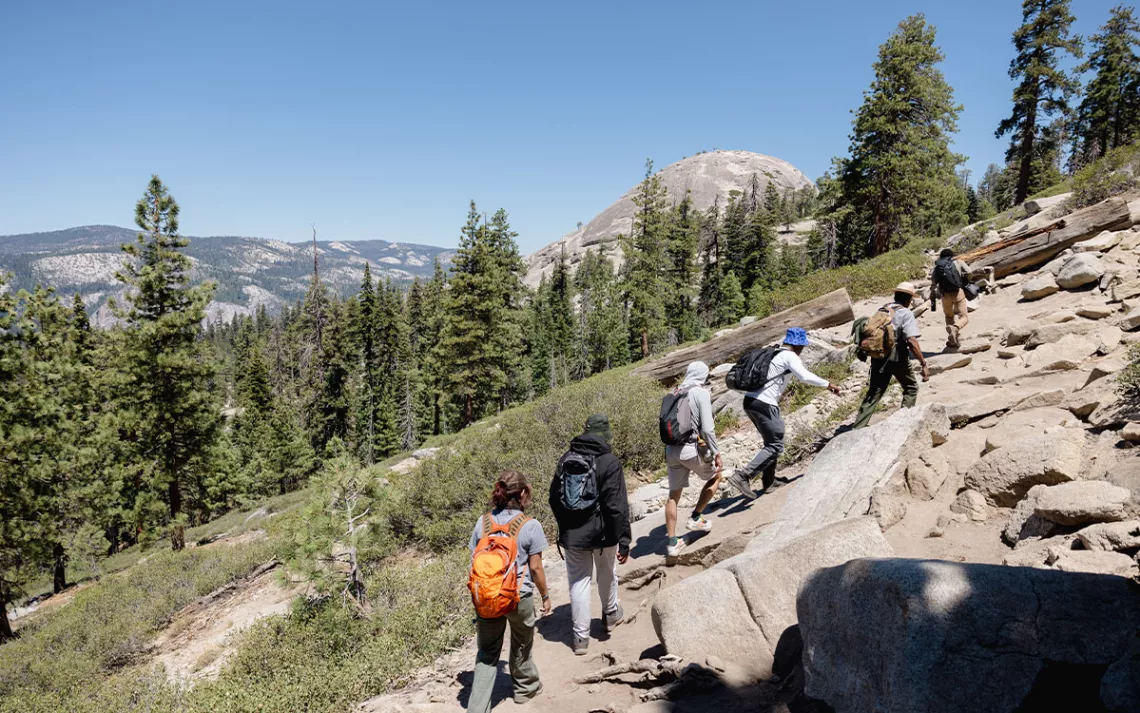Is Ryan Zinke Going to Prison?
Or is his resignation a get-out-of-jail-free card?

Photo by Shawn Thew | Associated Press
For Scott Pruitt, former director of the EPA, it was a Chick-fil-A franchise. For Ryan Zinke, the newly former interior secretary, it was the siren call of a microbrewery that he’d been fantasizing about opening for years. Back in 2012, when Zinke first floated the plan for a brewpub in his hometown of Whitefish, Montana, he already had a name picked out—the “Double Tap,” a Navy SEAL term for two gunshots. But his grand vision was repeatedly blocked by neighbors who didn’t want bar traffic going through their neighborhood.
Earlier this year, rumors began to spread in microbrew circles that Zinke might be getting that brewery after all. A new development near Zinke’s property was in the works—hotel, retail shops. Zinke’s wife, Lola, had donated land from the couple’s foundation to provide a parking lot for the project and had submitted plans that included a brewery. Whitefish’s city planner told Politico that the project’s developers informed him that the microbrewery was for Zinke.
One of those developers is David Lesar, chairman of Halliburton—a front-runner in fracking technology that is poised to profit handsomely from Zinke’s policy of leasing as much public land and coastline as possible for oil and gas drilling along with Zinke’s attempts to weaken Obama-era rules on fracking and methane leaks.
It would seem difficult to avoid investigation for an apparent eagerness to sell out the vast beauty of America’s public lands and waters in order to achieve either craft brew or chicken sandwich dreams. But, at least in Pruitt’s situation, that appears to be the case.
In November, the EPA’s Office of Inspector General (OIG) told Congress that it had closed its investigations of Pruitt, including the Chick-Fil-A matter and his suspicious apartment rental from a lobbyist whose clients included Smithfield Foods, which has tangled with the EPA over its practice of dumping hog waste into Chesapeake Bay. “Mr. Pruitt resigned prior to being interviewed by investigators,” the OIG wrote in a summary that it presented to Congress. “For that reason, the OIG deemed that the result of the investigation was inconclusive. The case will be closed.”
This is partly because the OIG’s investigative powers become much weaker once an official leaves office. (It’s also worth noting that Andrew Wheeler, Pruitt’s successor at the EPA, has similar alleged conflicts of interest, though none yet involving sandwiches.)
If Zinke gets the same pass, that’s too bad, because Zinke seems, based on the best available evidence, to have violated conflict of interest rules.
According to reporting from Politico, Zinke’s own records, and testimony from a person who was there, revealed that, before his wife signed off on the project, Zinke met with Lesar at his office at the Interior Department headquarters—then retired to a nearby beer garden to discuss the development in detail. “Ryan—our development plan and your park project are an absolute grand slam,” wrote one of the developers in an email to Zinke post–beer garden. “I have never been more excited about a development as I am about this one.”
The microbrewery isn’t Zinke’s only misstep. He’s been irresponsible with EPA funds; been suspiciously in alignment with the oil and gas industry when it comes to matters like the endangered sage-grouse, offshore oil drilling, and the Arctic National Wildlife Refuge; and ignored the sovereignty of tribal governments, possibly at the behest of MGM Resorts International. None of these, though, is as clear-cut a case of potential misconduct as Microbrewgate.
If the Justice Department were to pursue a case against Zinke, it would be for violating federal conflict of interest law. If he were found guilty, he could face up to five years in prison and a $50,000 fine for each violation. But that’s a big “if” right now. The attorney general has discretion over whether to bring the charges. In June, when the Chick-fil A story came out, several members of Congress wrote a letter to the attorney general’s office, asking it to bring charges against Pruitt, but to no avail.
That all could change January 3, when 100 new US representatives—many of them very interested in what has been going on with America’s public lands—take office. “There's going to be a flood of oversight and investigative demands," Gerry Connolly, a Democrat from Virginia, the ranking member of the House Oversight Subcommittee on Government Operations, told E&E News. "Our challenge is going to be to prioritize,” said Illinois representative Bobby Rush in the same story, adding that EPA officials could expect to spend so much time testifying to Congress that they might as well find an office to sleep in nearby. One of those officials, Connolly added, was likely to be Andrew Wheeler. “I don't think he'll have time to roll back any more regulations."
There is precedent for EPA officials facing criminal charges even after they resign. In the 1980s, the Reagan administration stacked the EPA with appointees who had dubious connections to the same industries that the EPA was supposed to regulate. Some 20 appointees ultimately resigned, and one, Rita M. Lavelle, former chief of the EPA's toxic waste programs, was sentenced to six months in prison and fined $10,000 for lying to Congress in a case known as Sewergate.
Scott Pruitt was, notoriously, collecting donations for his legal defense fund while he was still at the EPA. No word as to whether Zinke has something similar. But if he doesn’t, it might be time for him to start.
 The Magazine of The Sierra Club
The Magazine of The Sierra Club



